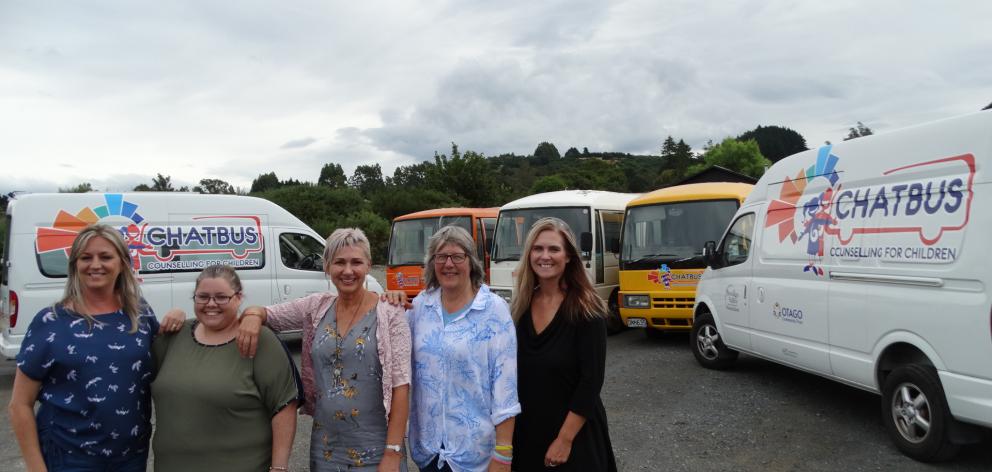
ChatBus chief executive and counsellor Averil Pierce said a major cause was what children were seeing on the internet.
"Children are being bombarded by the international world, and they are not emotionally able to process it,'' Mrs Pierce said.
"Their brains are simply not developed enough to cope.''
In 2018, ChatBus' five counsellors worked with more than 700 children in 16 Dunedin and Mosgiel primary schools.
With constant demand from schools to join the service, Chat Bus has expanded its reach for 2019, and now has six counsellors working in 23 primary schools.
Funded through grants and the schools it works with, ChatBus has bought two new vehicles with grants from the Bendigo Valley Foundation, Otago Community Trust, and Conflict Toolbox.
It now has five small buses set up as counselling spaces, and will be expanding to Gore and Invercargill during this year.
Mrs Pierce said ChatBus was part of the pastoral care provided to children through schools.
"We are there to support families and to give children a voice,'' she said.
Mrs Pierce said children were increasingly being exposed to violent images, as well as horror and the supernatural through movies and online clips, which was of particular concern.
"While your child may be [physically] safe in your home, if they are watching violent images online, then their brains are being forced to process it,'' Mrs Pierce said.
"These things take away the innocence of childhood, and cause anxiety as the child struggles to process the information.''
Another common issue for children was the impact of two contrasting parenting styles - those who were not giving their children enough attention, and those who were "helicopter parents''.
"Many parents are busy and are looking for downtime when they come home tired from work - so they spend time on technology, rather than spending time with their children.
"We hear lots of children say that their mums and dads don't pay attention to them, which is very sad.
"Spending time with a parent is a big need for children - it helps them to feel safe, loved, and that they are loved.''
Helicopter parents have a tendency to keep their children too busy with activities, leaving them no time for rest or downtime.
"We all need downtime, that is when you have head space to think and be creative,'' Mrs Pierce said.
When it came down to it, the most important thing a parent could give their child was connection and the knowledge that they were loved.
"Children need, and want, parents to spend time with them at home - to play board games, read stories, play cards, or to go to the beach or a park and leave technology at home.
"Somehow, parents need to work out how to parent with technology in their lives, without it ruling their lives.''
BRENDA.HARWOOD @thestar.co.nz












